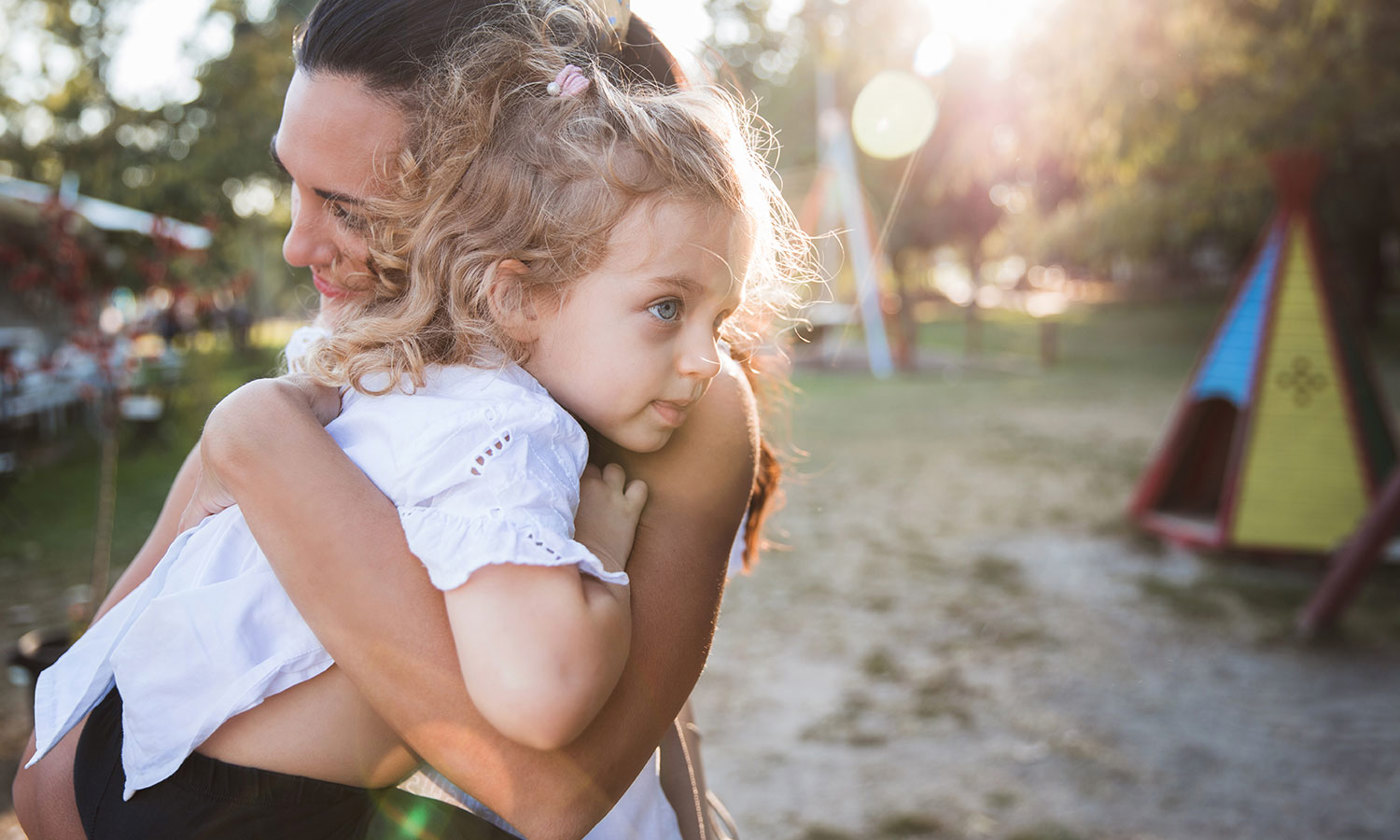Like what you see?
Sign up to receive more free parenting advice.
Thank you for subscribing to our newsletter!
Child Development

Credit: iStock.com/Dobrila Vignjevic
As parents, we often question our performance as we focus on how we are going to shape and mould our children into the adults we hope they will be.
How do we ensure they reach their full learning potential?
How do we avoid tantrums but instead have our child clearly communicate their needs to us?
How do we make sure they make the right decisions? When we are there, and when we aren’t.
But, perhaps, we are jumping too far. Perhaps, we are forgetting about one basic rule.
We can do none of the above if our child’s brain feels unsafe.
“When a brain feels unsafe, it goes back to that primal function, so we lose access to the front part of the brain that makes good decisions,” explains Karen Young, neurodevelopment educator and founder of Hey Sigmund.
“The front part of the brain is used to make deliberate decisions, it’s used to retrieve learned information, to regulate self-control and to think through consequences.
“When we lose access to that part of the brain, we just go to instinct and impulse as it just becomes about ‘what do I need to do to become safe right now?’.”
A paper on the Science of Neglect from Harvard University, explains that when adult responses are unreliable, inappropriate or absent, a child’s developing brain circuits can be disrupted and subsequent learning, behaviour and health can be impaired.
Young adds that a child’s brain feels unsafe when there is any sense of separation from their important adults.
It can be emotional separation, like shame, or a sense of emotional disconnect, like when we put them in a time out or when they experience separation anxiety.
Young points out that sometimes separation anxiety is unavoidable, for example when we need to leave children in the care of others, but in those cases, we identify a carer, who the child feels safe with, to come in and build that sense of safety.
What an unsafe brain looks like
When a child’s brain feels unsafe, they lose their ability to use that thinking part of the brain. This can manifest into tantrums, big feelings, big tears, being withdrawn and even a calm child.
“If you send a child to time out, you may get a calm child, but it doesn’t necessarily mean that their bodies are calm,” Young explains.
“If their body isn’t calm, then their brain doesn’t actually feel safe, and we don’t have access to that front part of their brain, so we are less effective in being able to teach and guide them.
“As parents, the biggest consequence is we lose our capacity to influence and guide them as they don’t have access to that thinking mode.”
This consequence can continue into their older years.
“As a form of self-preservation, no one is going to put themselves in front of someone who is going to shame or punish them,” she says.
“So, when children are older, when they make big mistakes, they are more likely to keep things from us.”
It’s important to note that it’s not about ensuring our child’s brain never feels unsafe.
“All brains feel unsafe sometimes, and that is normal and healthy,” Young highlights.
“It will happen when children don’t get what they want, when parents need to enforce rules and boundaries (in a loving way instead of a shaming way) and when children are tired or hungry.
“The brain will hardwire around what happens most, so we want their brain to feel safe most of the time.”
When our brain feels safe, we can make better decisions, we can think things through, we can exercise more self-control, we can connect more, learn more and be more deliberate in what we do.Karen Young
Stay up to date with the latest news and articles from First Five Years
Thank you for subscribing to our newsletter!
The benefits of a safe brain
In a 2017 paper on early brain development, the authors note that young children develop and function well when provided care in safe, interesting, and intimate settings with secure and trusting relationships with knowledgeable caregivers who are responsive to their needs and interests.
Therefore, the key factor in making a child’s brain feel safe is for parents to build close, safe relationships with the child.
“When our brain feels safe, we can make better decisions, we can think things through, we can exercise more self-control, we can connect more, learn more and be more deliberate in what we do,” Young says.
“Ultimately, that is where we want children to be.”
She explains that the safer a brain feels, the more the brain is hard wiring to give us and the child access to that high order function, which include those more complex functions like self-control, self-regulation and learning.
“Longer term, their mental health will be better as they will be less likely to read neutral things as threats and therefore, may experience less anxiety,” Young adds.
“But what if I’ve made my child’s brain feel unsafe?”
At this point, you might be reliving the past few years.
Did you use controlled crying in the quest to get your baby to sleep through the night?
What about the time outs you employed to get through the terrible twos… and the terrible threes?
What about that time you lost your temper and yelled?
“A really important point to make is that brains are always open to change, it’s called neuroplasticity,” says Young.
“Even if, as parents, we have used sleep training, times outs, lost our temper or weren’t around that much, it’s important to remember that there would have been lots of resilience factors during those times too.
“For example, parents would have cuddled their children, or read to them, or played with them, or were available to them.
“It’s not just about what we do wrong that makes a brain feel unsafe, we must balance it with the things that we actually got right and there’s a lot of that.
“It’s about what happens the most and it’s about rebuilding the relationship now.”
She recommends parents focus less on managing the child’s behaviour and more on their behaviour as a parent.
“It is really easy to get stuck in ‘How do I make my child into a really good person?’, don’t worry about that,” she advises.
“Worry about who you are when you are with them, and the rest will follow.
“Of course, it’s not all about warm and fluffy, there still need to be boundaries but it needs to be loving leadership.
“Children might feel shame when they mess up, but it doesn’t mean that we, as parents, have shamed them.”
Young explains that the greatest benefit from safe, strong, available and loving parents is that when children mess up, they will seek out their parents for support which means parents will be able to guide them in the right direction.






